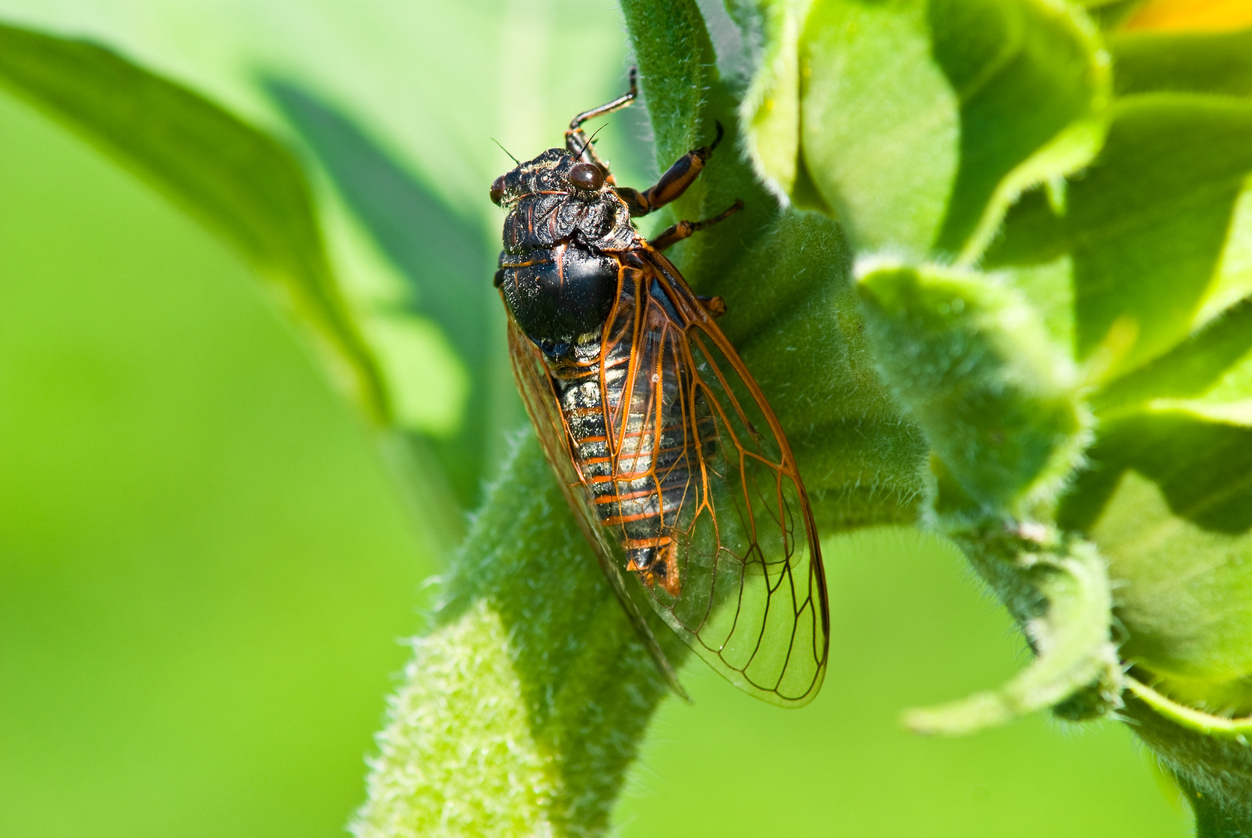Why You Always Hear Singing Bugs In the Summer
Summer is a time for long days, short nights, fun in the sun — and a lot more insects. Some of summer’s new visitors aren’t always seen, but they can certainly be heard. This time of year it’s the familiar song of cicadas, grasshoppers and katydids that fill the air, and summer just wouldn’t sound the same without them. But why do these insects sing? And how do they sing? And why do we only hear them during summer? Well, the short answer is simple: evolution.
Sun-Loving Singers
Like most insects, cicadas and their cousins are cold-blooded. That means their body temperature is impacted by their environment. When it gets too cold, like during winter or at night, they slow down or stop completely. They thrive during the summer because the warmth gives them energy to find food and sing songs. Because of this, most of these singing critters are more active during the day, but katydids can also sing well into the summer night.
A Chorus of Critters
There are a few reasons that these bugs sing, but communication is the main one. The most common way is as a mating call. The males of each species attract females by singing individually to woo a specific mate while warding off other suitors. Sometimes they join together in a chorus to attract a whole group of potential mates. They also sing in unison to ward off predators like birds — the pitch is painful to their ears.
Tymbal Technology
While cicadas, crickets, grasshoppers, locusts and katydids are all similar in that they sing songs, how they sing varies across species. Cicadas have a special organ called tymbals that are a pair of ribbed membranes underneath their abdomen. When the tymbal muscles are contracted, the membranes produce their trademark sound. Grasshoppers and crickets produce their songs by stridulation — a.k.a. friction by rubbing the inside edges of their textured forewings together. Locusts and katydids also use stridulation, however, they rub the femur of their hind legs against the edge of their forewings together, almost like playing the violin.
Give Us a Call
Concerned about the less musical summer insects in your backyard? Give Arrow a call today — we’re here to help!






 YouTube
YouTube Facebook
Facebook Twitter
Twitter Instagram
Instagram